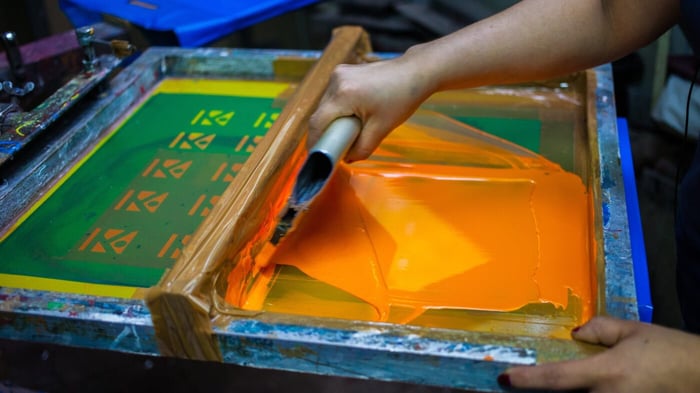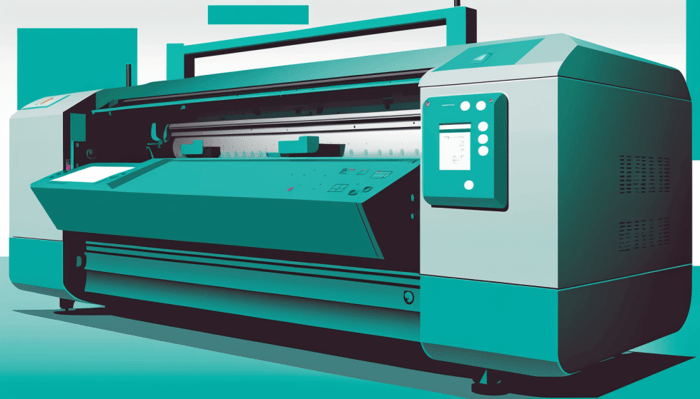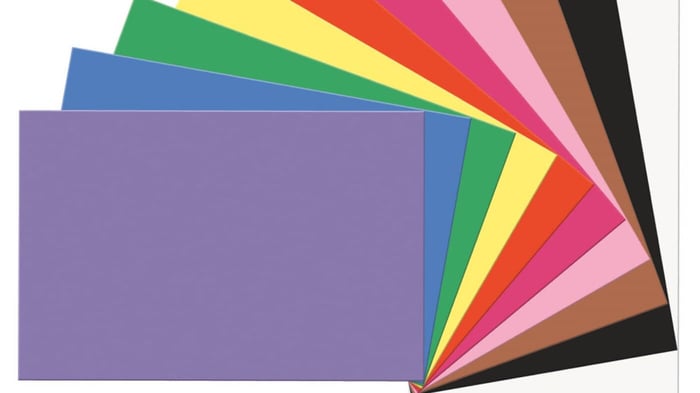So, you just bought a cool screen printed shirt, but it feels a bit stiffer than you'd like? Don't worry, you're not alone! Many people face the same issue and there's a solution for it. But before we jump into that, let's get a quick understanding of what screen printing is.
Screen printing is a technique that uses a woven mesh to support an ink-blocking stencil. The stencil forms open areas of mesh that allows the ink to come through as a sharp-edged image. This method is popular because it produces vivid colors and can be used on a variety of materials.
The Fabric Factor

Knowing what type of fabric your shirt is made of is critical because it greatly influences how soft it can become.
Screen printing is commonly done on cotton, polyester, or a blend of both. Cotton is known for its softness and breathability, while polyester is more durable and resistant to wrinkles.
While cotton shirts are naturally softer, screen printing can make them feel stiff. On the other hand, polyester shirts are naturally more rigid, but the right softening techniques can make them almost as comfortable as cotton.
Why Soften a Screen Printed Shirt?
A stiff shirt is not only uncomfortable but can also cause irritation and even rashes in people with sensitive skin. Besides, a softer shirt drapes better, making it look more stylish and flattering.
Preparation Before Softening
Before you start softening your shirt, there are a few things you need to do.
Not all screen prints are the same. Some use thicker inks that make the print area stiff. Others use thinner inks that blend into the fabric, maintaining its softness.
Ensure your shirt is clean before you start softening it. Dirty or oily spots can become more difficult to remove after the softening process.
Step-by-Step Guide to Softening
There are several ways to soften a screen printed shirt. Let's go through them one by one.
- Use of Fabric Softener: Fabric softener is the easiest and most accessible way to soften your shirt. Just add it to your laundry the next time you wash your shirt, following the instructions on the bottle.
- Use of Vinegar: Vinegar is a great natural fabric softener. Add one cup of white vinegar to the rinse cycle and let it do its magic. Don't worry, your shirt won't smell like vinegar after it dries!
- Use of Salt Water: Salt is another natural fabric softener. Soak your shirt in salt water for a few days, then rinse it thoroughly and dry it.
- The Power of the Washer and Dryer: Sometimes, simply washing and drying your shirt can soften it. The agitation in the washer and the heat in the dryer can help break down the stiffness of the print.

Balancing Comfort and Print Quality
You want that soft feel, but you also don’t want to accidentally wear away your fresh design. That’s why it’s important to test any softening method on a small area first—preferably along a seam or inside hem. If you notice the ink starting to fade or peel, switch to a gentler approach, like a shorter soak in vinegar or a lower-heat setting on the dryer. Keep an eye on the print after each wash, too. If the edges begin to crack, you may need to dial back your softening routine or consider a protective wash bag. By testing the waters little by little, you can find that sweet spot where your shirt feels comfortable without dulling or damaging the design.
Maintenance Tips
Once your shirt is soft, you'll want to keep it that way.
Storing Your Shirt
Fold your shirt neatly and store it in a dry, cool place. Don't stack too many shirts on top of each other as this can cause the print to crack.
Cleaning After Softening
Always wash your shirt inside out to protect the print. Use cold water and a gentle cycle. Also, avoid using bleach or other harsh detergents as they can stiffen the print again.
Ironing Your Shirt
If you need to iron your shirt, turn it inside out first. Never iron directly on the print as this can cause it to melt or crack.
Some Mistakes to Avoid
There are a few things you should avoid doing to prevent making your shirt stiffer. These include over washing, using too much detergent, and drying your shirt under the sun for too long.
Frequently Asked Questions
Can I soften a screen printed shirt without damaging the print? Yes, the methods described above are gentle on the print while making the shirt softer.
How often should I soften my shirt? This largely depends on how often you wear and wash your shirt. Generally, you might need to soften it every few washes.
Can I use baking soda to soften my shirt? Yes, you can. Add half a cup of baking soda to your laundry during the wash cycle.
Can I soften a polyester shirt? Yes, polyester shirts can be softened using the same methods. However, they may not become as soft as cotton shirts.
Can I soften a shirt with a heat press print? Yes, but be careful when washing and ironing it. Heat press prints are more susceptible to heat damage.






